Owning an electric car, in this day and age, is becoming increasingly easy to justify. Aside from ever-expanding model line-ups, longer ranges, widening infrastructure and impressive performance figures, there are countless benefits – such as environmental brownie points, tax grants, and exemption from certain charges and fees. More to the point, owning an electric car can also serve up exceptionally low running costs.
Make no mistake: choose an electric car wisely and it will potentially be less costly to run than a conventional petrol or diesel car. You’ll also never need to visit a petrol station for refuelling again, either, scrapping yet another motoring-related annoyance in the process. Want to find out just how much you could save? Read on to find out…
How to calculate running costs for an electric vehicle (EV)
The capacity of an electric car’s battery is expressed in kilowatt hours (kWh), which is a measure of the energy storage available in the cells. A Tesla Model S packs a 100kWh battery, for example, whereas the latest Nissan Leaf comes with a 40kWh battery in standard form. So, to calculate how much it costs to charge your car, simply look at the cost of electricity (either your home supply or at a public charging point) and do the maths.
In simple terms, the maths is: Size of battery (kWh) x Electricity cost of your supplier (pence per kilowatt hour) = Cost to charge an electric car from absolutely empty to full.
Don’t worry if you’ve never done this before. In this handy explainer, we’ll show you how to crunch the numbers yourself.
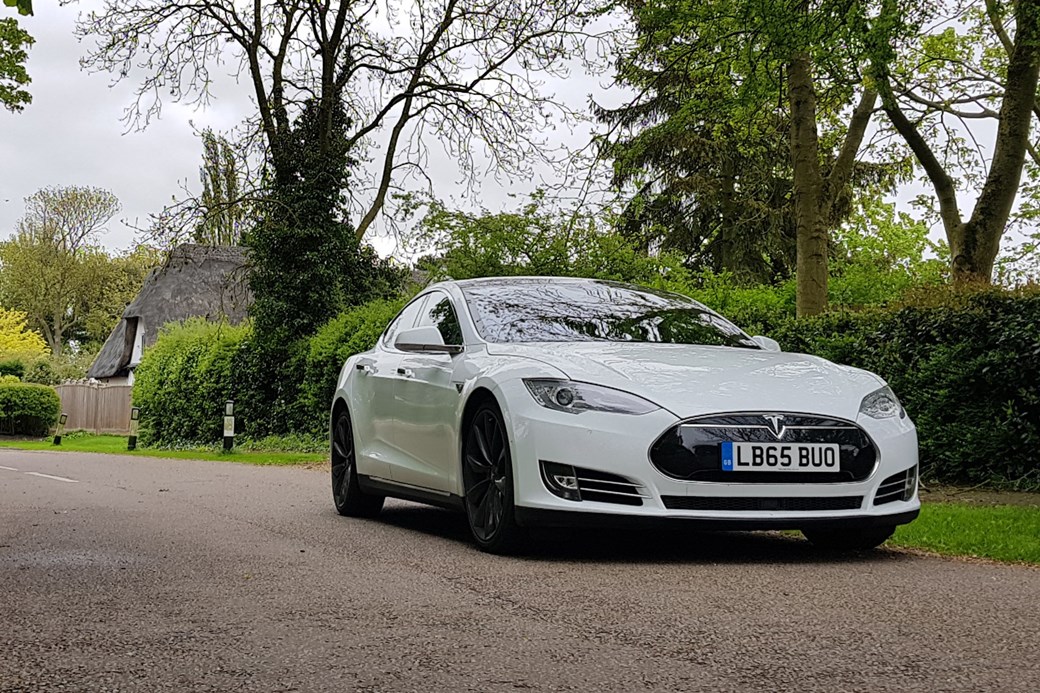
Let’s consider a 100kWh Tesla Model S. A typical public rapid charging point in the UK might cost around 30p per kWh, so the total outlay is 100 x 30p = £30 if you were to theoretically charge from completely empty to full.
Switch to a cheaper home supply, which could cost 12p per kWh on a good-value overnight tariff, and the maths works out at a more palatable 100 x 12p = £12.
That might appear a major saving compared to the cost of a £60-odd tank of fuel for a conventional petrol or diesel car. A Model S might go some 250 miles on a single charge, that said, whereas the alternatives will typically travel far further on a single tank. A diesel car might rack up some 500 miles between refuelling stops; for the Tesla to do the same, it would have to be charged twice – bumping the outlay to £60 on a public charger or £24 on a home charger.
Consequently, to produce meaningful running cost figures, you need to factor in both an EV’s range and how you’re going to charge it. Rely primarily on less expensive charging solutions, though, and you could stand to rack up some significant savings.
The best electric cars you can buy
The cheapest electric cars to run
| Vehicle | Cost to Fully Charge | Cost per 100 Miles | |
| 1 | Hyundai IONIQ Electric | £5.81 | £3.75 |
| 2 | Tesla Model 3 Standard Range Plus | £7.19 | £3.78 |
| 3 | Tesla Model 3 Long Range Dual Motor | £10.78 | £3.85 |
| 4 | Fiat 500e* | £6.04 | £3.89 |
| 5 | Hyundai Kona Electric | £9.70 | £3.96 |
| 6 | Tesla Model 3 Long Range Performance | £10.78 | £3.99 |
| 7 | Mercedes-Benz EQA* | £8.62 | £4.01 |
| 8 | Renault Zoe ZE50 R110 | £7.86 | £4.03 |
| 9 | Volkswagen ID.3 Pure* | £6.90 | £4.06 |
| 10 | Honda e* | £5.10 | £4.08 |
Real-world case studies: how much does it cost to charge an electric car?
Just like conventionally powered vehicles, electric cars come in different shapes, sizes and specifications – and will therefore have varying costs. For this article, we’ve studied the running costs of a cheap and cheerful Renault Zoe EV run by our sister site Parkers as a long-term test car.
Researchers on Parkers have compared it to the other vehicles on its long-term test fleet, so you can get a better idea of just how much it costs in the real world.
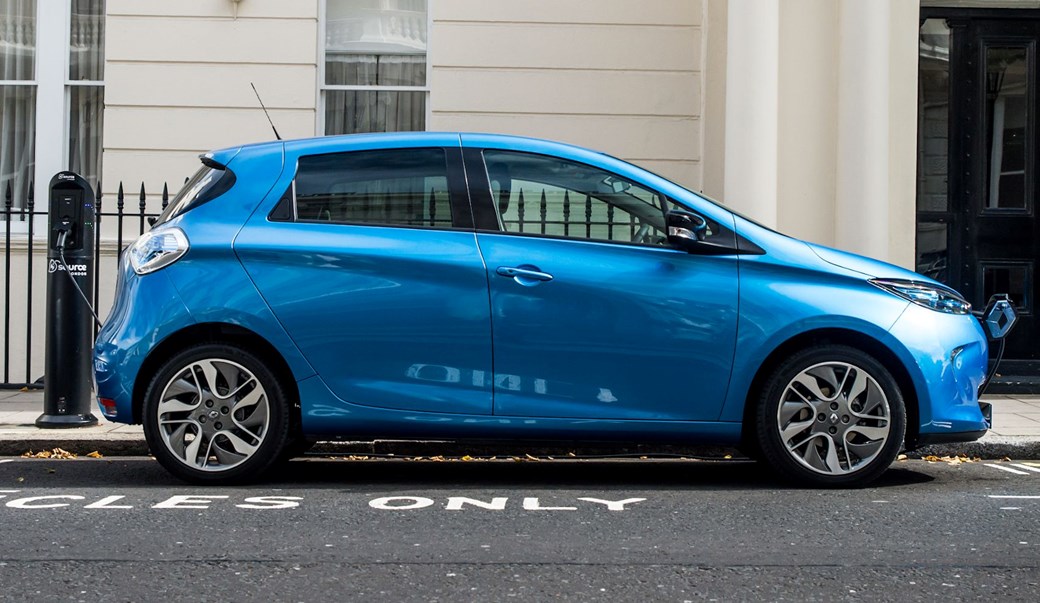
Don’t forget you’ll need to add the initial cost of a home-charging point to these prices. Go for a basic budget charger and, inclusive of the OLEV grant from the government, it’ll set you back around £200 fitted – whereas a more powerful charger will cost around £1000. Some manufacturers bundle charger installations with new EV purchases, that said, which will help keep costs down.
Electric car battery tech explained: costs, capacity and longevity
Running costs of a Renault Zoe EV
The cost of the Zoe over three months are as follows. We used our colleagues’ 66-mile round-trip journey to work and back as a benchmark, and studied the real-world costs of rival long-term fleet cars for comparison. Before we get into these figures, it’s important to note that these cars are driven by different people with different driving styles, and also that the Leaf’s figures were attained during the winter months; don’t forget that colder weather usually means less efficient batteries.
Renault Zoe cost per mile: 6.1p
Renault Zoe commute cost: £4.03
Compare this with the Parkers’ Nissan Leaf long-term test car.
Nissan Leaf cost per mile: 4p
Nissan Leaf commute cost (est.) £2.64
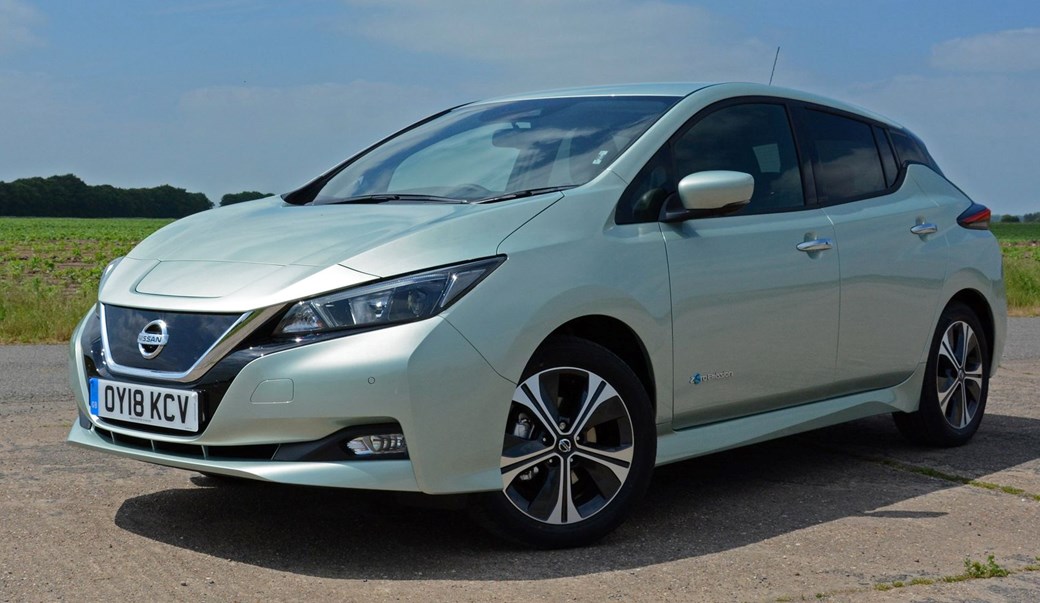
We’ve also compared the same 66-mile journey to the similarly-sized VW Golf GTE plug-in hybrid:
VW Golf GTE cost per mile: 11.5p
VW Golf GTE commute cost: £7.66
Compared to the Parkers’ Toyota C-HR hybrid (a non plug-in hybrid), you’ll find the following running costs:
Toyota C-HR hybrid cost per mile: 13.4p
Toyota C-HR hybrid commute cost: £8.84
The above suggests that when it comes to hybrids, an electric car is around 50 per cent cheaper. But interestingly, when comparing the running costs of a diesel or petrol car, you’ll find less of a difference.
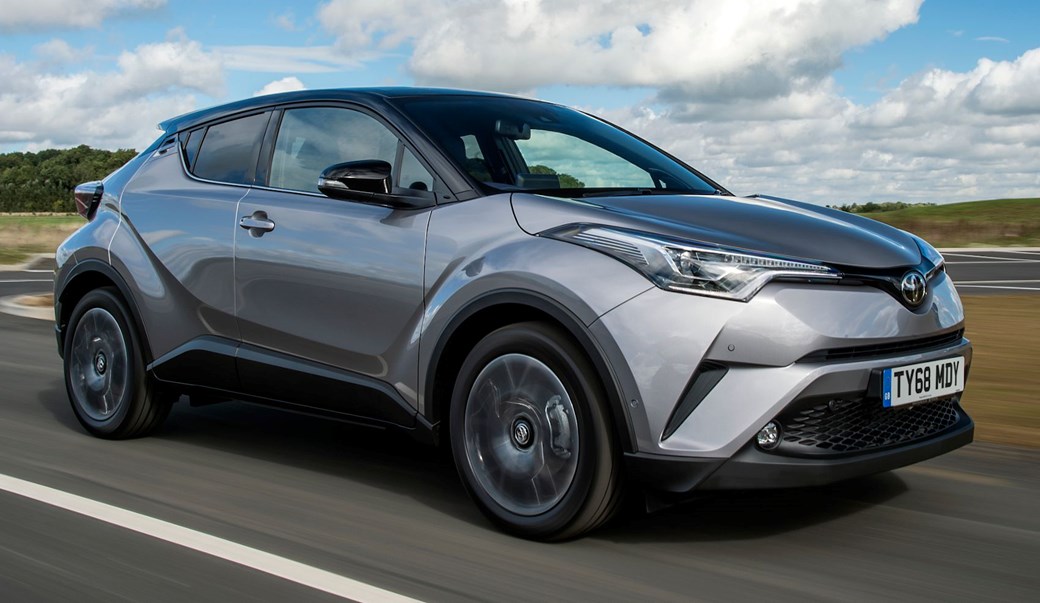
Parkers’ Citroen C3 is a supermini just like the Zoe, but it’s powered by a 100bhp 1.6-litre diesel. Here’s how it compares:
Citroen C3 BlueHDi 100 cost per mile: 10.6p
Citroen C3 BlueHDi 100 commute cost: £7.00
Meanwhile, Parkers’ Suzuki Swift – which is powered by an efficient 90bhp 1.2-litre petrol engine – produces the following costs:
Suzuki Swift 1.2 Dualjet 4×4 cost per mile: 8.7p
Suzuki Swift 1.2 Dualjet 4×4 commute cost: £5.74
Which proved least expensive? Hybrid, electric, petrol or diesel?
It’s a victory for the Zoe, in terms of charging costs versus fuel costs. And just to make the advantage clear, multiply those commuting costs by five for a typical working week, and then that by four to get an estimate of the monthly difference, and so forth. On paper, based on fuel costs alone, it’s the electric car that has a clear advantage.
This is more real-world than a science lab test, and we’ve taken the figures of different drivers for different cars – but the trends are obvious. Don’t forget that our running costs only take into account the daily commuting we’ve done; add in extra miles done at weekends and in the evenings, and you’d be saving even more money.
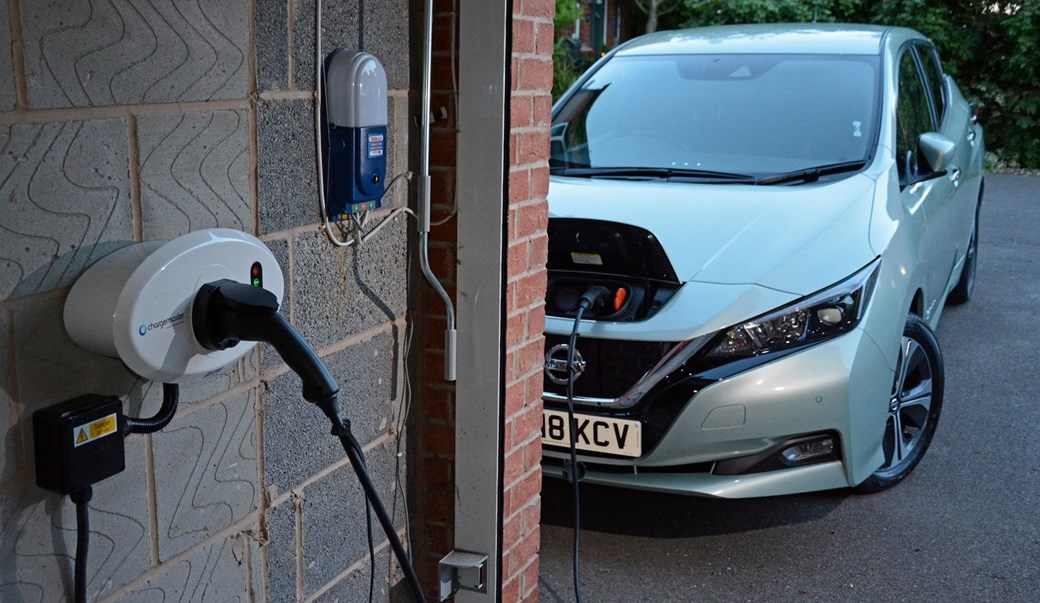
What about public charging of electric cars?
Right now, the Parkers’ Renault Zoe only needs to be charged at home each night time owing to its current usage. The cost of charging its battery will appear on your monthly electricity bill.
Home charging is generally cheaper than public charging, so the savings could be even more significant. However, when you consider 80% of electric car owners charge at home – according to BP Chargemaster – this is the most common scenario for the majority of EV motorists.
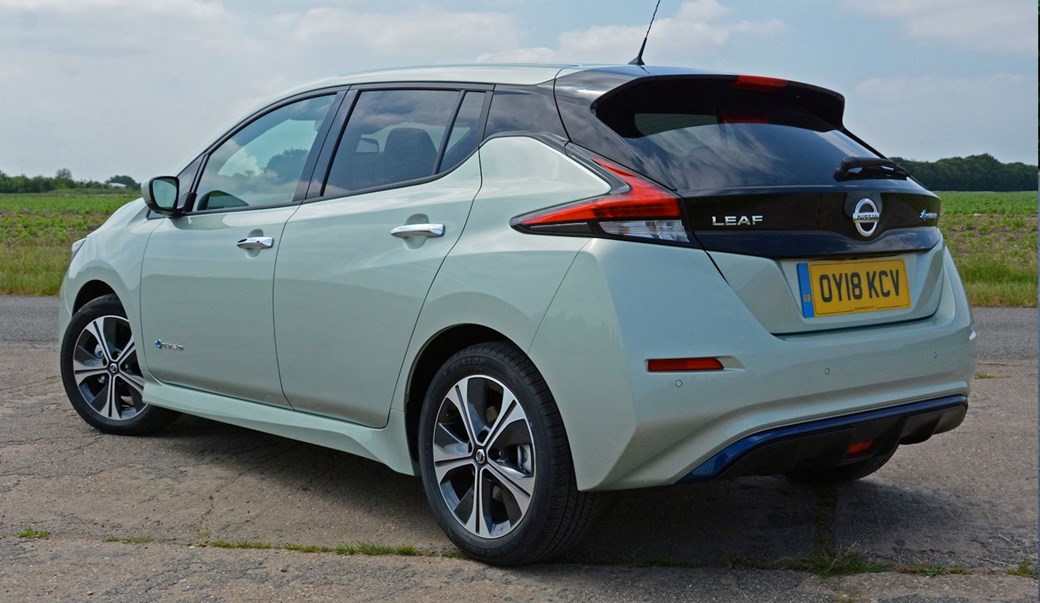
How much cheaper is an electric car per month?
Of course, there are other factors at play that you must take into account when working out the costs and potential savings of electric motoring; depreciation will play a significant factor in your monthly costs, for starters, if you’re buying your EV outright – or, alternatively, you will have to account for monthly leasing or PCP costs. Servicing, however, will often be far less expensive.
Get a handle on those key costs as well and you’ll be able to find out exactly what kind of savings might be possible.
Would I save money with an electric car?
We’d recommend looking at how much you’d potentially use your EV – and then calculate how much you’d need to charge up at home versus on the open road. The likelihood is that an electric car will save you hundreds, or maybe even thousands, of pounds a year compared to keeping a conventional diesel or petrol car going – but don’t forget about depreciation and servicing, in any case…
Source: https://www.carmagazine.co.uk
CUT COTS OF THE FLEET WITH OUR AUDIT PROGRAM
The audit is a key tool to know the overall status and provide the analysis, the assessment, the advice, the suggestions and the actions to take in order to cut costs and increase the efficiency and efficacy of the fleet. We propose the following fleet management audit.




